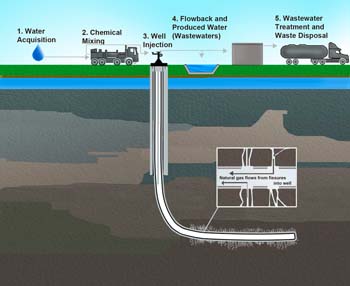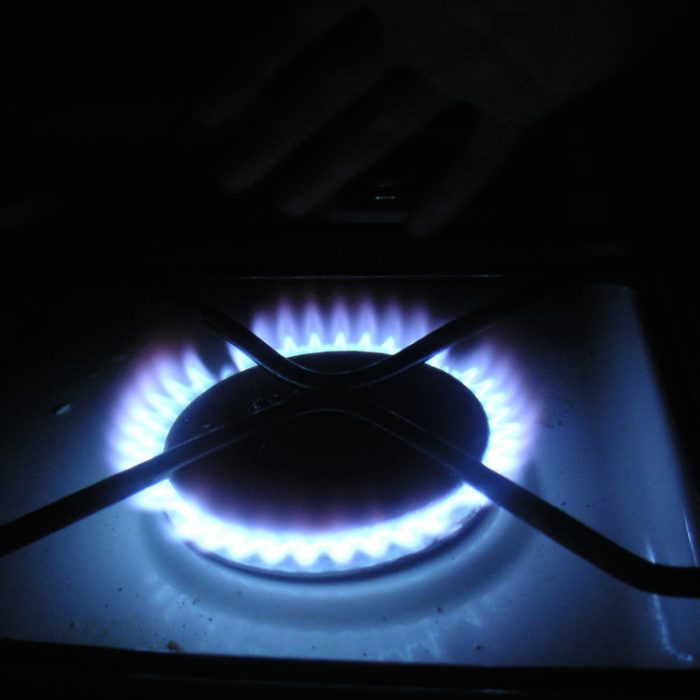Legal matters: Fracking on the golf course
This guidance from the National Golf Clubs’ Advisory Association looks at the financial and legal ramifications of allowing a fracking company to mine for energy on land the golf club owns.
Fracking, or to use its full name, hydraulic fracturing, is a process which is used to extract oil and gas from shale rock. The process involves drilling down into the earth before water, sand and chemicals are injected into the rock at high pressure. This causes the natural gas that is trapped in the shale rock to flow out to the head of a specially constructed well. The term ‘fracking’ refers to how the rock fractures apart by the high-pressure mixture.
The UK government has approved plans for fracking, which will be the first time this process has been used in the UK. It is estimated that there could be as much as 1,300 trillion cubic feet of shale gas, which is used to generate electricity and is used for domestic heating and cooking, lying under 11 counties in central and northern England.

Why is it controversial?
Critics argue that drilling for shale gas will cause untold environmental damage. Briefly, there are the following environmental concerns: Air pollution may be caused as a result of drilling which could lead to the release of hydrocarbon based chemicals; Pollution could be caused by leaks on the surface through spillage; Groundwater contamination may occur; and there is the possibility of earthquakes, as seen in Blackpool in 2011.
At present, there are unquantifiable economic concerns, such as the effect upon the value of land and property located within a fracking area.
The British Geological Society is the body which is authorised to monitor the environmental impact of fracking.
What rights does the golf club landowner have and what risks are posed?
These are the key issues:
Mineral ownership
Landowners in the US automatically retain ownership of the mineral rights under their land. The position in England and Wales however is very different where ownership of the surface land and the subsurface minerals may have been separated. Many owners of underground property rights are increasingly seeking to register their interests at the Land Registry as their value is becoming more recognised, possibly also with a view to being involved in any potential negotiations with shale gas developers concerning rights of access. Under the current laws and regulations, property rights must be obtained independently of other licences and consents which are required to implement what are known as Petroleum Exploration and Development Licences (PEDLs).
The property rights required to be obtained will vary depending upon the nature of the work. For instance, shale gas extraction will take place above and below the surface and both vertically and horizontally. Therefore, property rights must reach to the subsurface and also horizontally across varying distances.
Access and trespass
The Infrastructure Act 2015 became law on February 12, 2015. Prior to this, any interested fracking company had to either obtain permission from landowners and those holding the rights minerals below the surface or obtain a court order in respect of the compulsory purchase of those rights. The case of Bocardo SA v Star Energy established that a failure to do so, even if there is no damage to property, amounted to an actionable trespass. The consequence of the Bocardo case was that fracking operators required a licence from the secretary of state to carry out any exploration works.
The Infrastructure Act, however, has created new rights of use for the purpose of exploiting petroleum or deep geothermal energy. There is one condition attached to this right, which is that the land must be at least 300 metres below sea level. Section 44(1) states that fracturing is a permitted use. The act also provides the following:
- There is no requirement to return the land to its condition prior the works being carried out (including the right to leave any substance and infrastructure in the land)
- There is the requirement that the secretary of state may make regulations requiring companies to make payments in return for the right of use.

Contamination
Landowners may be liable for any contamination discovered years down the line resulting from fracking operations which wasn’t actually caused by the landowner. Under Part IIA of the Environmental Protection Act, persons who are classed as ‘knowing permitters’ may be liable for the cost of any remedial works, which could be substantial, even if they did not cause the contamination and didn’t have a choice of whether the works were carried out or not.
Nuisance
Land which neighbours a fracking site may be affected by dust, noise, lights, flaring as well as the visual impact of the site itself. This could become an issue for landowners as neighbouring landowners may have a right of claim against an owner of land where fracking takes place.
Value of land / property
It is considered that the negative impacts of fracking are likely to lead to a reduction in the value of property and rental values on and located close to a fracking site. This should be of particular concern where the land is not returned to its original condition following completion of the drilling.
What must an operator do before undertaking any fracking activity?
- An application must be made for a Petroleum Exploration and Development Licence (PEDL) and one must be issued by the Oil and Gas Authority.
- The operator must secure rights with the landowner.
- The Environment Agency will assess risk to water, air quality and how waste will be managed
- Planning permission must be obtained from the relevant local authority which is obligated to seek views from the local community
- Final oil and gas checks will be undertaken to ensure that controls are in place to protect against seismic activity.
Only after those steps have been followed may exploratory drilling begin.
What rights must the golf club landowner grant for works to commence?
This depends on the phase of development.
Exploratory Stage – property rights are more likely to be short term and less permanent, such as licences, option agreements or agreements for lease
Appraisal Stage – likely to consist of longer term licences, option agreements or agreements for lease
Development and Production Stage – property rights are likely to be longer term and more permanent, such as a formal long term lease or acquisition of the land by the operator.
Furthermore, specialist wayleave agreements may be required for the laying of any cables or wiring under or above the ground.
What can a golf club landowner do to protect its position?
- Commission a desktop search to ascertain whether the land / property is located within an area which may be subject to fracking
- Ensure that the land / property has a suitable insurance policy in place, which covers earthquake damage, subsidence, flooding, diminution of value, business interruption and contaminated land clean up
- If fracking or exploration works are planned then you could consider:
i. Objecting to the grant of planning permission
ii. Applying for an injunction
iii. Consider asserting rights under Article 8 of the European Convention of Human Rights, being the right to respect for private and family life and home (where the land in question includes a property)
- If after having given full consideration to the application in hand, to consider granting access rights to the fracking operation for the maximum compensation achievable.

Jackie Howe, the chief executive, is based in the office and is on-hand to offer advice and support. She is backed up by a team of specialist Solicitors to assist in legislative guidance for clubs.
The National Golf Clubs’ Advisory Association
The Threshing Barn, Homme Castle Barns,
Shelsley Walsh, Worcestershire, WR6 6RR
Tel: 01886 812943
email info@ngcaa.co.uk















Setting aside the very real health and environmental consequences as found in other parts of the world, high pressure high volume fracking will involve using vast amounts of sand of the particle size and shape used for top dressing golf greens. There will be a shortage and sand prices will go up. Also vast amounts of water will be necessary at a time of shortage, far more than is used at the average UK golf course.
Golf courses use more water than fraccing.
No they don’t. Not in the UK, particularly this summer. If you lived here instead of in Pennsylvania you would know that.
A welcome conservative if not quite alarmist report. This is not the “first time”, over 200 onshore wells have previously been hydraulically fractured in the UK, almost unnoticed.
@Daddypiker’s post is alarmist & inaccurate tosh.
Wrong. 200 onshore wells have not already been hydraulically fractured in the UK. Conventional wells have been basically unclogged when required. You and those with a vested interest like to refer to this as hydraulically fracturing which it is not. You and those with a vested interest like to spread this lie. Please get your facts right and stop posting inaccurate tosh.
If it walks like a duck, quacks like a duck, …
Those 200+ wells were hydraulically fractured. That is, a high pressure pumping arrangement was connected to them & a gelled sand-carrying fluid was pumped into them at a high pressure to crack the exposed formation rock & prop it open to improve the flow out. I think you are the one lying. Why?
You fail to differentiate between oil and gas wells. Why? You fail to mention hundreds of wells are required to extract shale gas. Why? Unclogging of oil wells has gone unnoticed because the well was already there. Fracking for shale gas gas has never happened in the UK until about 4 years ago when it caused a small earthquake in Lancashire. Fracking for shale gas will involve an explosion of thousands of wells across England.. Which will be noticed.
The real damage caused by the fracking process has proved to be human and animal health impacts within a 5 mile radius caused by airborne toxins from flaring, pollution of aquifers through lost fracking fluids and property damage from multiple earthquakes!
See latest Medact Report for more information.
The real damage caused by the fracking process has proved to be human and animal health impacts within a 5 mile radius caused by airborne toxins from flaring, pollution of aquifers through lost fracking fluids and property damage from multiple earthquakes!
See latest Medact Report for more information.